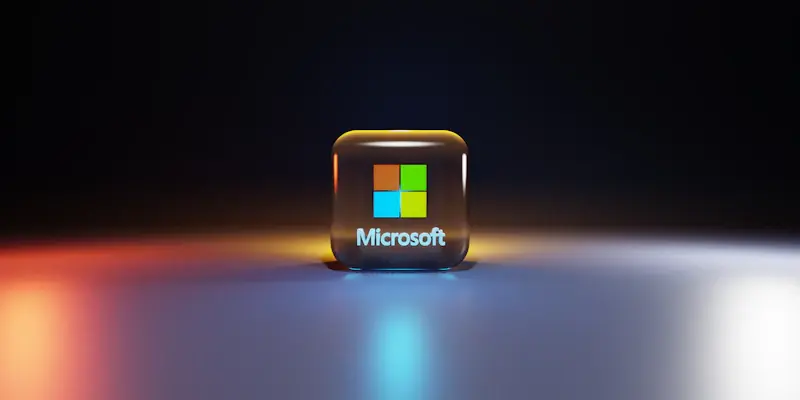In the rapidly evolving AI landscape, companies are racing to integrate cutting-edge features into their AI assistants. Microsoft’s Copilot, introduced in 2023 as a replacement for Cortana, has achieved substantial user engagement over the past two years. Amidst the competitive surge spearheaded by DeepSeek, Microsoft has celebrated its 50th anniversary with significant updates to Copilot to maintain its competitive edge in the AI-assistant market.
Advanced Memory Retention
The enhancements to Microsoft Copilot focus on advanced memory retention, personalization, and real-world interaction capabilities. These improvements are designed to make Copilot a more intuitive and versatile assistant for both personal and professional use. Among the standout features is the AI assistant’s ability to retain and recall user-specific information, such as preferences, interests, and important dates like birthdays. This enables Copilot to provide more personalized and contextually relevant responses, thus enhancing the overall user experience. Additionally, users have full control over what Copilot remembers, ensuring privacy and customization, particularly for sensitive tasks. Significantly, the memory retention capability is not merely a simplistic log of user activities. It tracks context across different activities and interactions, understanding patterns and predicting subsequent needs. If a user frequently asks for weather updates before scheduled outdoor events, Copilot proactively provides this information, contributing to greater user convenience. This level of sophistication ensures that Copilot evolves with the user, becoming more adept at anticipating needs and delivering seamlessly integrated solutions.
New Personalization Options
Another significant update includes the introduction of new personalization options. Users can now customize the AI assistant’s appearance and interaction style, making it more engaging. Notably, the nostalgic ‘Clippy’ assistant interface returns, allowing users who preferred it in the past to use it again. These personalization features aim to enhance user interaction and satisfaction.
This level of customization goes beyond superficial changes. Users can tailor Copilot to reflect their workflow preferences and communication styles, thereby promoting a more natural and productive interaction. For instance, a professional might choose a formal interaction style with a minimalist interface, whereas a more casual user might opt for a friendly tone with vibrant visual elements. This degree of personalization ensures that Copilot can seamlessly blend into the user’s life, bridging the gap between utility and personal connection.
Copilot Vision Integration
Expanding beyond digital tasks, the new version of Copilot incorporates Copilot Vision, a feature initially launched for web tools but now integrated into Windows and mobile apps. This allows the AI assistant to analyze real-time video inputs from mobile cameras, providing practical assistance in everyday scenarios such as plant care and home decoration based on the immediate surroundings. Moreover, a noteworthy addition is the ‘Actions’ feature, which empowers Copilot to perform online tasks like making restaurant reservations and booking hotels or travel tickets via simple commands. This is achieved through partnerships with apps like Booking.com, Expedia, and OpenTable, ushering in a substantial change in AI assistance capabilities. The Copilot Vision integration opens up new realms of user interaction by bridging the physical and digital worlds. It leverages advanced image recognition technologies to offer real-time solutions, whether it’s guiding users through DIY projects or suggesting improvements to their home environments. By extending its functionality to mobile devices, Copilot becomes an indispensable assistant in various settings, enhancing its practicality and versatility.
The Actions Feature
The introduction of the ‘Actions’ feature marks a significant milestone in AI-assisted task management. Copilot can now execute complex online actions, making day-to-day life more manageable and efficient. By commanding Copilot to schedule appointments or manage travel arrangements, users save valuable time and reduce the likelihood of overlooking details. These capabilities reflect Microsoft’s commitment to continuously enhancing Copilot’s utility by incorporating user feedback and technological advancements.
Moreover, the ‘Actions’ feature is designed to be highly adaptive and context-aware, performing tasks with minimal user input. By understanding user preferences and past behavior, it streamlines the task execution process, making it feel almost intuitive. For instance, if a user frequently books flights to a particular destination, Copilot learns this pattern and can expedite future bookings by pre-filling necessary details, which minimizes the steps involved in completing the task.
User Privacy and Control
Microsoft’s attention to privacy is evident in these updates, emphasizing user control over data retention. Users can easily manage what Copilot remembers, ensuring sensitive information is handled appropriately. This approach balances functionality with privacy, providing an AI assistant that is both powerful and secure. This level of control is crucial in building trust and ensuring that users feel comfortable integrating Copilot into various facets of their lives. The customization options extend to privacy settings, allowing users to tailor how Copilot interacts with their data. Whether it involves setting reminders for specific tasks or managing personal information, users have the autonomy to determine Copilot’s level of access. This transparency in handling user data is designed to enhance user trust, as it reflects a clear commitment to privacy, which addresses one of the most significant concerns in the realm of AI technology.
Conclusion
In the fast-paced world of AI, companies are in a race to integrate the latest features into their AI assistants. In 2023, Microsoft launched Copilot as a successor to Cortana. Over the past two years, Copilot has seen substantial user engagement, making it a noteworthy player in the market. As competition intensifies, especially with DeepSeek leading the charge, Microsoft has been striving to maintain its edge. Celebrating its 50th anniversary, the company has rolled out significant updates to Copilot. These updates are designed to enhance user experience and ensure that Microsoft remains a top contender in the AI-assistant arena. The push to innovate amidst the evolving AI landscape highlights the ongoing battle for dominance, where cutting-edge technology and user satisfaction are critical for success. Microsoft’s dedication to adapting and improving its AI offerings underlines its commitment to maintaining a strong foothold in this competitive field, illustrating the dynamic and ever-changing nature of the industry.

